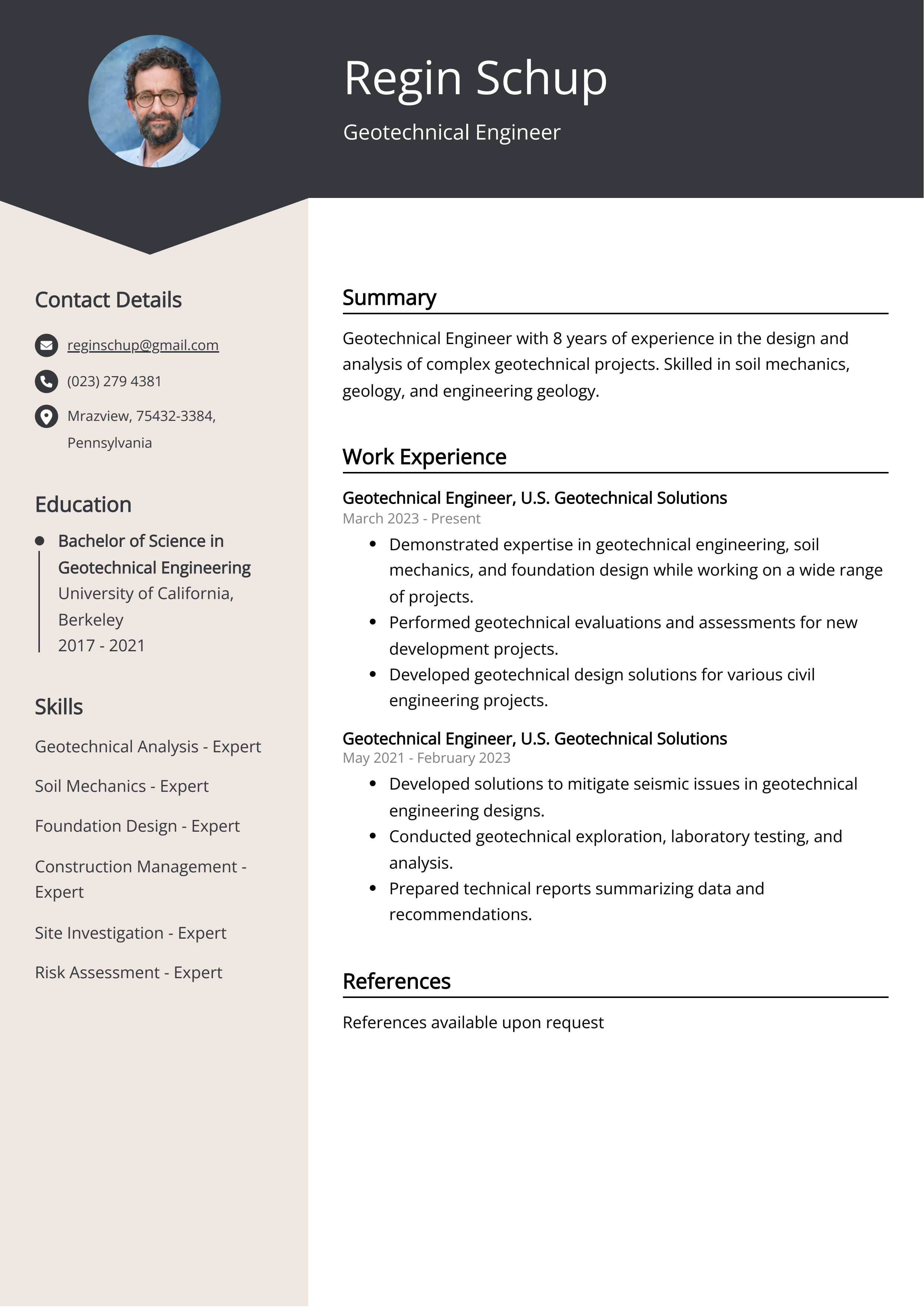Getting The Geotheta To Work
Things about Geotheta
Table of ContentsGeotheta - The FactsGetting The Geotheta To WorkGeotheta Fundamentals ExplainedExcitement About GeothetaThe Ultimate Guide To Geotheta

They conduct site examinations, gather examples, carry out lab tests, and analyze information to review the suitability of the ground for construction jobs - Consulting Engineer. Based upon their searchings for, geotechnical engineers supply recommendations for structure design, slope stability, preserving frameworks, and reduction of geotechnical risks. They team up with other experts, such as designers, structural engineers, and building and construction groups, to guarantee that geotechnical factors to consider are incorporated right into the total project design and execution
By assessing the habits and homes of soil and rock, they can recognize potential geotechnical threats such as landslides, soil negotiation, or slope instability. Their experience helps protect against failures or accidents that can endanger lives and home. Right here are some thorough tasks and duties of a geotechnical designer: Website Investigation: Geotechnical engineers conduct website investigations to gather data on subsurface problems.
They translate the information to recognize the residential or commercial properties and habits of the soil and rock, including their stamina, permeability, compaction characteristics, and groundwater conditions. Geotechnical Evaluation and Layout: Geotechnical designers analyze the data collected throughout site investigations to examine the security and viability of the site for building and construction tasks. They execute geotechnical estimations and modeling to examine elements such as bearing ability, settlement, incline security, lateral planet pressures, and groundwater circulation.
Unknown Facts About Geotheta
Foundation Design: Geotechnical engineers play a critical function in creating foundations that can securely sustain the desired structure. They examine the dirt conditions and lots needs to figure out the suitable structure kind, such as superficial foundations (e.g., footings), deep structures (e.g (https://www.edocr.com/v/p4pabymp/ianhammond2191/geotheta)., piles), or specialized techniques like dirt enhancement. They think about elements such as negotiation limits, bearing capacity, and soil-structure interaction to develop ideal foundation layouts
They assess building and construction plans, display site tasks, and carry out area inspections to verify that the design recommendations are adhered to. If unexpected geotechnical concerns occur, they assess the scenario and supply recommendations for remediation or modifications to the style. Risk Evaluation and Mitigation: Geotechnical designers examine geotechnical threats and risks associated with the job site, such as landslides, liquefaction, or dirt disintegration.

Partnership and Communication: Geotechnical designers work closely with other specialists included in a task, such as architects, structural engineers, and building and construction teams. Efficient interaction and partnership are important to integrate geotechnical considerations right into the overall project layout and construction process. Geotechnical designers provide technological knowledge, solution queries, and ensure that geotechnical demands are satisfied.
A Biased View of Geotheta
Here are some kinds of geotechnical designers: Foundation Engineer: Structure designers concentrate on developing and assessing foundations for structures. They analyze the dirt problems, lots demands, and site qualities to determine one of the most proper foundation kind and layout, such as superficial structures, deep structures, or specialized methods like pile foundations.
They examine the elements influencing incline security, such as dirt buildings, groundwater conditions, and slope geometry, and develop approaches to avoid incline failures and mitigate risks. Earthquake Engineer: Earthquake designers focus on evaluating and making frameworks to withstand seismic pressures. They evaluate the seismic risk of a site, assess dirt liquefaction capacity, and create seismic design criteria to make sure the safety and durability of structures during quakes.
They do field testing, accumulate samples, and assess the collected information to define the soil buildings, geologic formations, and groundwater conditions at a site. Geotechnical Instrumentation Engineer: Geotechnical instrumentation engineers concentrate on tracking and gauging the habits of soil, rock, and structures. They install and preserve instrumentation systems that keep an eye on elements such as soil settlement, groundwater degrees, incline activities, and architectural variations to evaluate performance and offer early warnings of possible issues.
Geotheta Fundamentals Explained
They perform examinations such as triaxial examinations, debt consolidation tests, direct shear examinations, and leaks in the structure examinations to collect data for geotechnical analysis and layout. Geosynthetics Designer: Geosynthetics engineers focus on the layout and application of geosynthetic materials, such as geotextiles, geogrids, and look here geomembranes. They make use of these products to enhance soil security, strengthen inclines, offer water drainage services, and control disintegration.
They tend to be investigatory people, which indicates they're intellectual, introspective, and investigative. They are interested, methodical, logical, analytical, and sensible. Some of them are also social, indicating they're kind, generous, cooperative, individual, caring, practical, empathetic, sensible, and friendly - Geotechnical Engineers.
In the workplace atmosphere, geotechnical engineers make use of specialized software program devices to do calculations, create layouts, and evaluate data. They prepare reports, evaluation job requirements, connect with clients and staff member, and coordinate project activities. The workplace setup gives a conducive setting for research, analysis, and partnership with other experts associated with the task.
Our Geotheta Diaries
They frequently check out project websites to carry out site investigations, examine geotechnical problems, and gather information for evaluation. These sees include traveling to different locations, occasionally in remote or tough terrains. Geotechnical engineers may perform soil sampling, conduct examinations, and monitor construction tasks to guarantee that the geotechnical facets of the job are being executed correctly.
Geotechnical engineers also work in specialized geotechnical laboratories. Geotechnical laboratory engineers work thoroughly in these environments, taking care of screening devices, running instruments, and taping information.